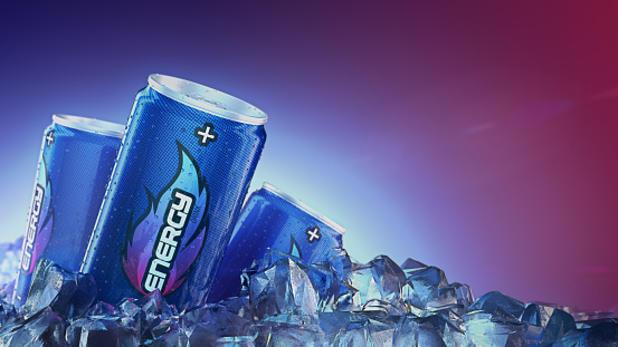Need Pick Me Up? Consider Other Means to Boost Your Energy Besides Energy Drinks

Until a few years ago, millennials were the driving force behind sales of Red Bull, Monster, Rockstar and other so-called energy drinks. But that trend has been changing. In fact, Gen-Xers and Baby Boomers are now significant consumers of the highly caffeinated beverages.
While energy drinks may seem safe, they’re linked to more heart and blood pressure changes than other caffeinated drinks, according to a new study published in the Journal of the American Heart Association.
Researchers compared the changes in blood pressure and cardiac electrical activity between two groups of military personnel. The first group drank a 32-ounce commercial energy drink with 320 mg of caffeine while the second group drank a 32-ounce lime and cherry juice concoction with 320 mg of caffeine. After six days, the groups switched drinks. After taking EKG readings and measuring blood pressures throughout the process, researchers found:
- The energy drink group had a 10-millesecond delay in their QT intervals--the time it takes for the heart’s lower chambers to go through their electrical cycle and generate a beat. Although it seemed to correct itself two hours, any time the QT interval is either too short or too long, it raises the risk of developing an irregular heartbeat (or arrhythmia).
- Both groups had similar increases in systolic blood pressure (top number). But the pressures of the caffeine group returned to its original reading after about six hours; whereas, the pressures of the energy drink group were still slightly elevated beyond six hours. This suggested to researchers that energy drinks contain other ingredients that also affect blood pressure.
Not all energy drinks are created equal, but they usually contain between 80 mg and 500 mg of caffeine per can. An 8-oz. cup of coffee typically has between 65 mg and 100 mg, depending on the brew (a 20-oz. Starbucks Blonde Roast has 410 mg of caffeine).
Mayo Clinic advises healthy adults to limit their daily caffeine intake to 400 mg or less—that’s roughly 4 cups of brewed coffee. Caffeine within this range can help suppress your appetite, get rid of a headache or boost your energy.
Even so, drinking this amount of caffeine can also cause heartburn, dehydrate you and interfere with your sleep. More importantly, it raises your blood pressure (albeit temporarily) and makes your heart worker harder if you have an arrhythmia. Consuming more caffeine—beyond 400 mg—can raise your heart rate, cause palpitations and in some extreme cases, lead to a cardiac arrest.
But caffeine, as researchers noted, isn’t the only ingredient in energy drinks. Other common ingredients found in many energy drinks include guarana, a paste made from the seeds of an Amazonian plant that contains caffeine, and theophylline and theobromine—two chemicals with caffeine-like traits.
Besides stimulants, energy drinks also are high in sugar. An 8-ounce energy drink generally has between 27 and 37 grams of sugar. The same sized soda only has 21 grams of sugar.
If you’re looking for an energy boost, consider a different approach. Try boosting your energy naturally with these simple lifestyle changes.
- Set aside time to meditate and relax each day.
- Engage in physical activity each day.
- Shut off your electronic devices before going to bed so they don’t interfere with your sleep patterns.
- Drink more water to help prevent dehydration which drains your energy levels.
- Avoid skipping meals and throwing off your blood sugar levels.
- Limit alcohol and processed foods.
- Get enough magnesium into your diet with plant-based foods such as nuts/seeds, whole grains and green leafy vegetables.
If your tired on a regular basis, work with your MDVIP-affiliated doctor to help you figure out the root cause(s) which could include sleep issues, iron-deficiency anemia, blood sugar problems or a thyroid condition. As part of the MDVIP Wellness Program, your doctor can customize a wellness plan for you and your needs. Don’t have an MDVIP-affiliated doctor? Find one near you by clicking here »


